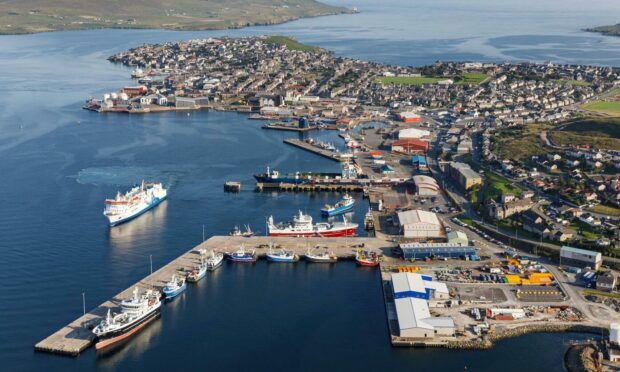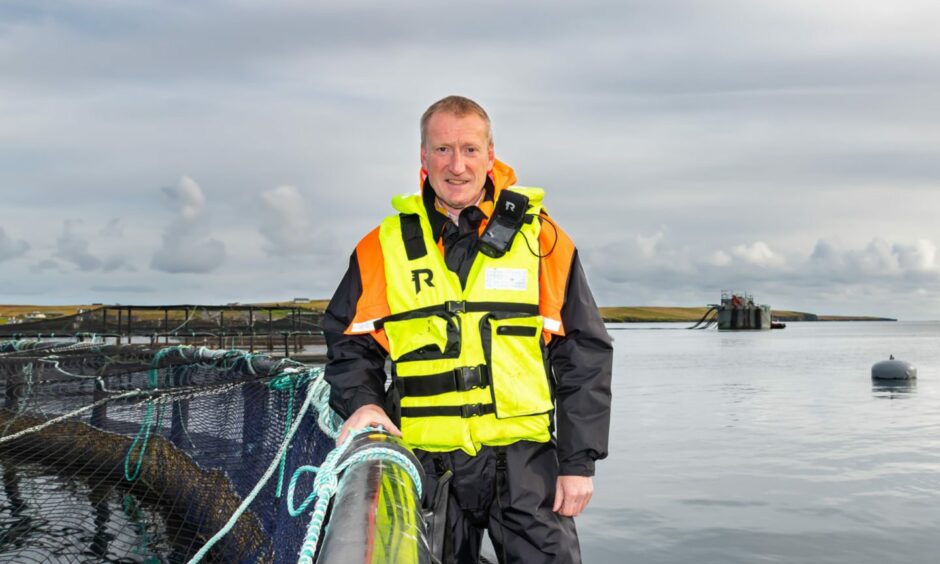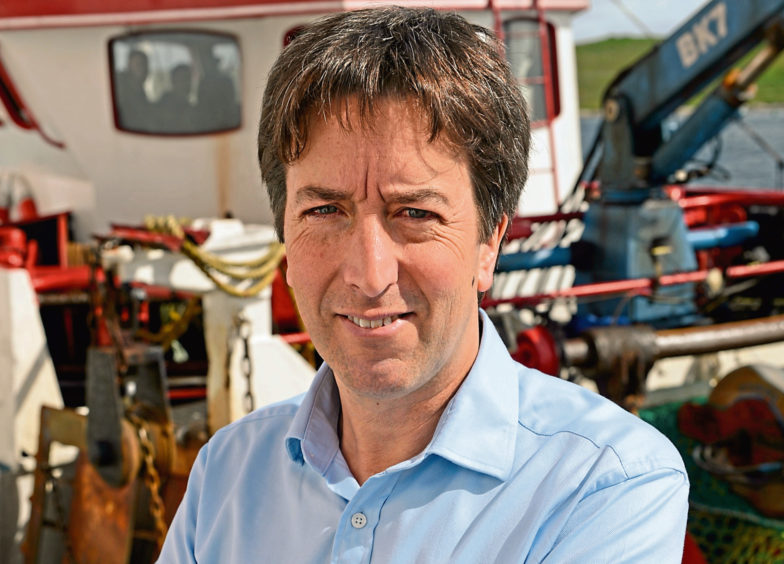Shetland seafood producers have claimed they were advised by Transport Scotland to scale back landings and production to ease freight pressure.
But the Scottish Government agency dismissed their claims as “entirely wrong”.
The seafood industry and hauliers met Transport Scotland and Serco-owned NorthLink Ferries in Lerwick on June 21 to repeat their demand for a solution to capacity problems bedevilling Shetland.
Seafood Shetland chief executive Ruth Henderson delivered a withering assessment of what she described as “reducing production”.
Ferry options put forward
Ms Henderson said: “As peak livestock season looms, with no freighter in Lerwick on a Monday or Tuesday, and in a desperate and constructive effort to find a solution, we tabled our own options to the meeting.
“In the absence of an extra freight vessel for the Shetland-Aberdeen route being procured immediately, we suggested sailing the freighters every day, with current layover days (when the freighters remain in port) used to provide services on the Shetland/Aberdeen route direct; sailing passenger ferries back-to-back twice a week, starting on, say, a Tuesday; and diverting some livestock-related cargo to the Pentland Firth.
“When Transport Scotland’s solution is to ask these sectors – whose output is so significant not only to the Shetland economy but also to the Scottish economy – to consider reducing their production, then it does seem we have reached an impasse.”
Transport Scotland fired back, however insisting it was “entirely wrong and disingenuous” to suggest the industry was asked to scale back in the meeting.
A spokesman for the government agency said: “Ministers are very clear about the importance of supporting commercial freight traffic for the economic well-being of key rural industries and our island communities.
“Transport Scotland officials recognised a previous initiative aimed at tackling freight capacity issues was not found to be beneficial by the industry.
“Officials were clear we remain open to working local suppliers to consider other initiatives, subject to them being practical and offering value for money.”
He added: “The planned development of the two new freight vessels will address issues like this in the longer term, but we continue to explore potential shorter term actions that could alleviate some pressures on the freight service.
Seafood industry sources said they left the Lerwick meeting feeling “exasperated”.
No immediate resolution
An alliance known as the Stewart Building Transport Group (SBTG) said “repeated calls” to Transport Scotland and government ministers to resolve the capacity issue had brought no resolution despite growth in freight volumes.
Transport Scotland officials attending the meeting heard first-hand the continuing challenges faced by hauliers and their customers.
Salmon Scotland chief executive Tavish Scott said: “We pay millions of pounds every year for the freight service, and are simply not achieving what we need in order to sustain and grow the sector and the economy.
“Despite our best efforts, there is no evidence any action is being taken to resolve the very real issues our inadequate freight service brings to bear on the economy of the islands and Scotland as a whole.
“The response regarding the fishing and aquaculture sector scaling back is simply unbelievable and demonstrates a breathtaking ignorance of economic and industrial realities.
“Here we have a booming industry providing employment and delivering products for an international market. Long-term inaction from Transport Scotland, however, is now compounded by this sad response.”
‘We ask the agency and Scottish government to do better’
Mr Scott added: “Once again, we ask the agency and the Scottish Government to do better, to listen to constructive proposals and to work with us. Shetland-based industries are working very hard and very successfully for Shetland and for Scotland.”
Shetland Fishermen’s Association executive officer Simon Collins said the government’s growth targets were “well documented”, adding: “We have it in our power to help them to achieve their aspirations but we are not only being thwarted by their very own transport agency, we are being asked to rein in our own ambitions in international markets.”
At the start of 2022 – and following the ferry operator’s indication the service would face challenges in the year ahead – SBTG commissioned a study to investigate freight volumes and arrangements for all the sectors of Shetland’s economy.
The report concluded additional freight capacity was needed to meet industry demand on the Aberdeen-Lerwick-Aberdeen ferry route with almost half of all sailings running at more than 90% capacity.
Northlink Ferries declined to comment.




Conversation